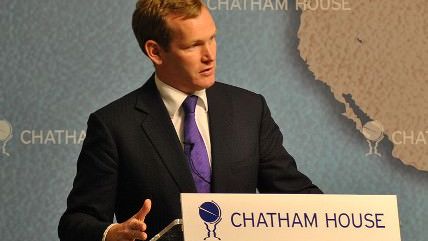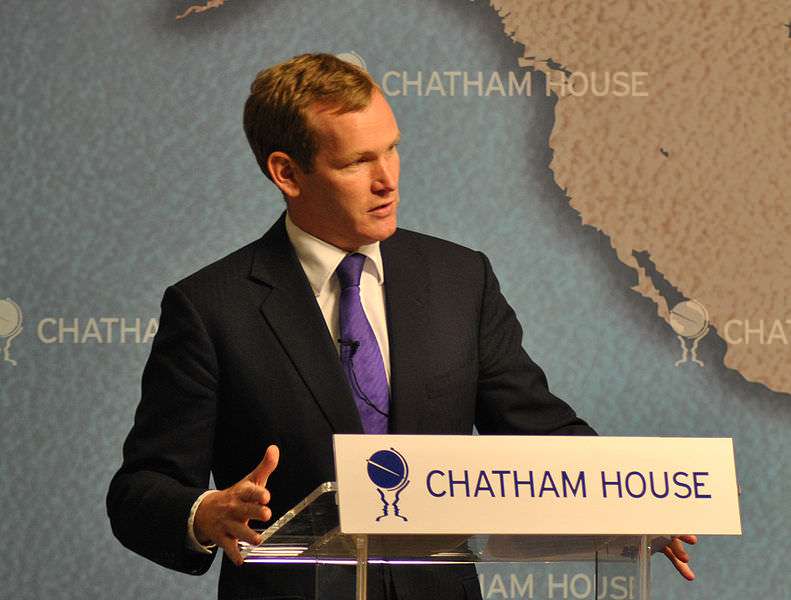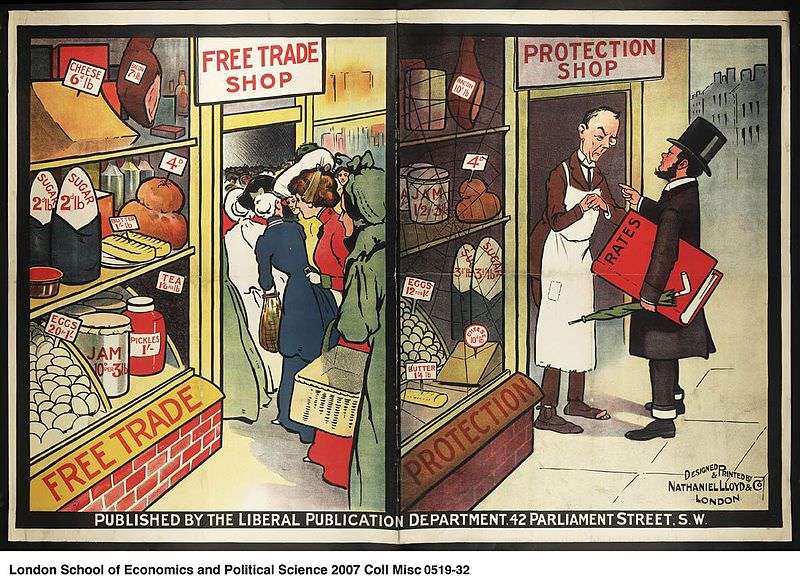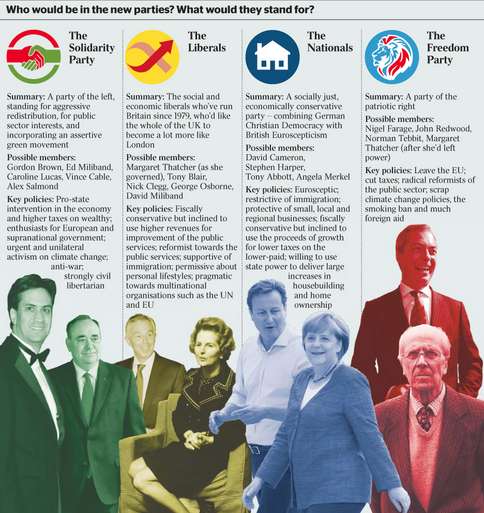The British Political Map Needs to Be Redrawn


Recent comments from a British legislator have highlighted an ideological conflict within the Liberal Democrats. Jeremy Browne, a member of parliament, has written a book called Race Plan, which outlines policies that he believes will prepare the U.K. for "the Asian Century."
In a review of the book for the Liberal Democrat Voice, Nick Thornsby outlines Browne's proposals, most of which sound sensible to me: cuts to government spending, a school voucher system that allows parents and teachers to make decisions, a reduction in the top tax rate. Browne reportedly wants the British state to be equivalent in size to between 35 and 38 percent of GDP—still too high for my liking, but a definite improvement on the current situation. Thornsby notes that on the day of Race Plans' publication (yesterday) he saw Browne described as a "Thatcherite" and "neoliberal," terms that are not meant as compliments by many Liberal Democrats.
According to Patrick Wintour, The Guardian's politics editor, Browne criticizes both Prime Minister David Cameron and the leader of his own party, Nick Clegg, for failing to defend markets in the face of criticism from Labour Party leader Ed Miliband:
He writes: "Both the governing parties have agonised over whether to ridicule or match Miliband's ideas, usually before trying to do both and while achieving neither. The result is a shortage of politicians who are prepared to bang the drum for free markets or to call the bluff of those that constantly wish to distort them."
It's great that Browne is calling out Clegg and Cameron for failing to stick up for markets when Miliband, who will prime minister if Labour wins the next general election, says that he would "bring back socialism" to the U.K. However, it is worth remembering that there are plenty of Liberal Democrats who are not fans of markets and may well vote for Labour in the next election, which is due to take place next year.
How can a pro-market, pro-tax-cuts liberal be in the same party as people such as Tim Farron, the president of the Liberal Democrats, who said Thatcher's government was "organized wickedness"?

The Liberal Democrats was founded in 1988, the result of a merger of the Liberal Party and the Social Democratic Party, which had been in alliance since 1981. The Liberal Party was "liberal" in the classical sense, backing limited government spending and free trade. The Social Democratic Party was founded by four former members of Labour cabinets dissatisfied with how left-wing the Labour Party had become. It formed the alliance with the Liberal Party shortly afterwards. These two camps are still on display today.
Browne's comments in Race Plan prompted David Priestland to write in The Guardian that the Liberal Democrats' dilemma shows why the U.K. needs four political parties:
In many countries, the forces of "liberalism"—meaning support for individual rights against authoritarian states and socially liberal causes (the environment, women's and gay rights)—have already split into two: one more economically liberal and suspicious of the state (like the German Free Democrats), and the other more sceptical of markets (such as the German Greens, or D66 in the Netherlands).
Britain, however, with its hopelessly antiquated electoral system, forces both types of liberal into three party blocs: free-market liberals are spread between the Tories and Lib Dems, while leftwing liberals are divided between Labour and the Lib Dems. Meanwhile, the Lib Dems themselves are condemned to continuous civil war between the two camps and, most seriously, the electorate is denied a clear choice.
Tim Montgomerie, who used to edit the blog Conservative Home and now writes for The Times, wrote last December about the theoretical political parties that reflect contemporary Britons' attitudes: The Solidarity Party, The Liberals, The Nationals, and The Freedom Party. Under Montogerie's proposal the different factions of the Liberal Democrats would be split:

It's unlikely that a party system like the one Montgomerie envisions is going to emerge anytime soon, but it would be nice for classical liberals in the U.K. to have a home again.
* Disclosure: I used to work at Liberal Democrats' headquarters.


Show Comments (20)